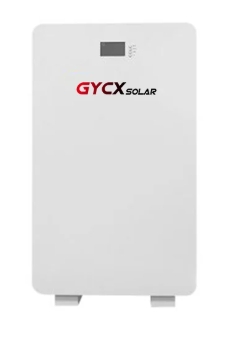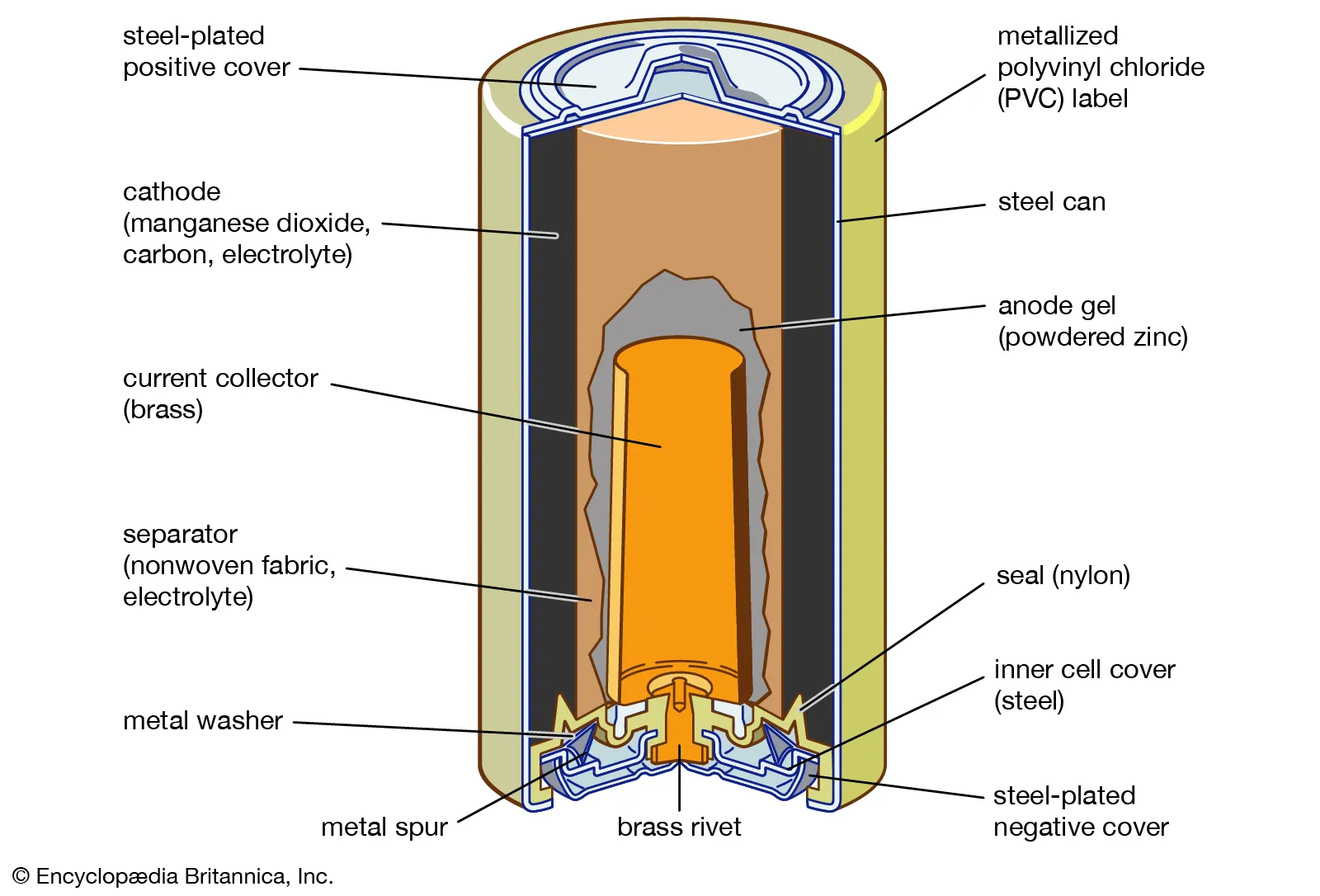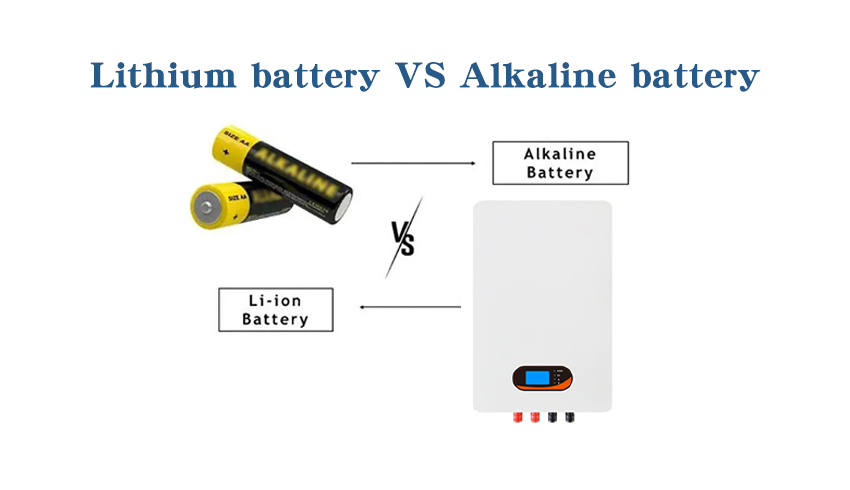일일 장치에 전원을 공급할 때 리튬 및 알칼리 배터리 선택이 중요합니다..
이 기사는 리튬 이온 배터리 대 알칼리성의 다양한 특성을 탐구합니다., 그들의 장점과 단점을 비교하십시오, 자신의 필요에 따라 현명한 선택을 할 수 있도록.
리튬 이온 배터리는 무엇입니까??

리튬 이온 배터리는 스마트 폰과 같은 다양한 전자 장치에서 널리 사용되는 일반적인 충전식 배터리입니다., 노트북, 그리고 전기 자동차.
그것의 작동 메커니즘은 음성 전극으로부터의 리튬 이온의 움직임을 기반으로합니다. (양극) 양극 전극에 (음극) 방전 중에 배터리의, 그리고 충전 중에 그 반대도 마찬가지입니다.
이 유형의 배터리는 가볍고 에너지 밀도가 높은 특성을 가지고 있습니다., 많은 양의 에너지를 작은 양으로 저장할 수 있습니다..
그들은 긴 수명과 좋은 배터리 유지 능력에 선호됩니다., 휴대용 전자 장치에서 사용하기에 매우 적합합니다..
리튬 이온 배터리의 장점
빛:
리튬 이온 배터리는 스마트 폰과 같은 휴대용 장치에 매우 적합합니다., 노트북, 가벼운 특성으로 인해 전기 자동차.
또한 태양 에너지 저장 시스템의 중요한 구성 요소이기도 합니다..
높은 에너지 밀도:
리튬 이온 배터리는 더 작은 부피에 많은 양의 에너지를 저장할 수 있습니다., 이를 통해 장치의 수명을 연장합니다..
낮은 자체 방전:
리튬 이온 배터리는 자체 방전율이 낮아 장시간 사용하지 않아도 전력을 유지할 수 있습니다., 항상 사용 가능하도록 보장.
안정적인 전압 출력:
퇴원 과정 중, 전압은 안정적으로 유지됩니다, 배터리가 소진될 때까지 장비에 지속적이고 안정적인 전력을 공급합니다..
충전식:
리튬 이온 배터리는 여러 번 충전 가능, 일회용 배터리에 비해 더 경제적이고 환경 친화적입니다..
리튬 이온 배터리의 단점:
제한된 사이클 수명:
리튬 이온 배터리의 충전 빈도는 제한되어 있습니다., 충전빈도가 높아질수록, 권력을 유지하는 능력이 점차 감소할 것입니다., 결국 교체가 필요한 상황.
이로 인해 서비스 수명 동안 장비의 유지 관리 비용이 증가할 수 있습니다..
온도 감도:
리튬 이온 배터리는 온도 변화에 민감합니다., 고온 환경에서는 배터리 노화가 가속화되고 수명이 단축될 수 있습니다..
하지만, 극도로 낮은 온도는 일시적으로 배터리 성능에 영향을 미치고 장비의 효과적인 사용을 감소시킬 수 있습니다..
숨겨진 위험:
리튬 이온 배터리는 과열, 팽창 등의 안전 위험을 초래할 수 있습니다., 극단적인 경우 화재나 폭발을 일으킬 수 있습니다..
부적절하게 사용하거나 가혹한 조건에 노출되면 이러한 위험이 증가하고 사용자 및 재산 안전에 위협이 될 수 있습니다..
충전 복잡성:
리튬 이온 배터리 충전에는 안전과 효율성을 보장하기 위해 특정 프로토콜을 준수해야 합니다..
부적절하게 충전하면 배터리 수명이 단축될 수 있습니다., 성능 저하, 심지어 안전 위험을 초래하기도 합니다..
환경 영향:
리튬 이온 배터리에는 리튬과 같은 유해 물질이 포함되어 있습니다., 코발트, 니켈을 환경에. 부적절한 취급 및 재활용으로 인해 환경 오염 및 생태학적 피해가 발생할 수 있습니다..
그 동안에, 제조 과정에는 자원 집약적인 채굴 및 가공도 포함됩니다., 생태학적 파괴를 일으킬 수 있는.
알칼리 배터리는 무엇입니까??

알카라인 배터리는 다양한 저전력 전자기기에 적합한 비충전식 배터리입니다..
아연과 이산화망간의 화학반응을 통해 전기를 생산합니다..
이러한 유형의 배터리는 일반적으로 리모콘과 같은 장치에 전원을 공급하는 데 사용됩니다., 손전등, 장난감, 그리고 휴대용 라디오.
알카라인 배터리는 다양한 사양으로 제공됩니다., AA를 포함해, AAA, 씨, 디, 그리고 9V, 긴 수명과 안정적인 전압 출력으로 선호됩니다., 지속적이고 안정적인 전원 공급이 필요한 저전력 장치에 특히 적합합니다..
충전식 배터리와는 다르게, 알카라인 배터리는 배터리가 고갈될 때까지 사용한 후 재충전할 수 없으므로 올바르게 취급해야 합니다..
일회용품임에도 불구하고, 알카라인 배터리는 가격이 저렴하기 때문에 여전히 널리 사용되고 있습니다., 쉬운 접근성, 일상적인 저전력 장치에 전원을 공급하기 위한 적합성.
알칼리 배터리의 장점:
경제적이고 실용적인:
알카라인 배터리는 널리 사용 가능하고 비용 효율적입니다., 모든 예산의 소비자에게 적합.
긴 유통기한:
다른 배터리에 비해, 알카라인 배터리는 수명이 더 깁니다., 그리고 장기간 보관하더라도, 전력 손실은 크지 않습니다..
정전압:
배터리의 전체 수명 동안, 알카라인 배터리는 일정한 전압 출력을 제공할 수 있습니다., 안정적인 전력을 사용하는 장치의 일관된 성능 보장.
다양성:
알카라인 배터리는 다양한 크기와 사양으로 제공됩니다., 소형 공구부터 대형 가전제품까지 전자 기기에 적합.
편의:
일회용 배터리로는, 알카라인 배터리는 충전을 원하지 않는 사용자에게 편리함을 제공합니다., 배터리가 방전되면 새 배터리로 신속하게 교체할 수 있습니다..
저전력 적용성:
알카라인 배터리는 리모컨, 벽시계 등 저전력 장치에 매우 적합합니다., 오랫동안 유지하려면 일정하지만 낮은 배터리 수준이 필요합니다..
알칼리 배터리의 단점:
충전할 수 없습니다:
이러한 유형의 배터리는 일회용 제품이므로 사용 후 적절하게 폐기해야 합니다., 그렇지 않으면 자원 낭비가 발생할 수 있습니다..
짧은 수명:
알카라인 배터리의 전원 공급 시간은 제한되어 있으며 몇 시간 동안만 지속되거나 특정 전압 수준에 도달한 후 교체가 필요할 수 있습니다..
전력 소모가 큰 장치에는 적합하지 않습니다.:
빠르고 많은 양의 전력이 필요한 장치의 경우, 알카라인 배터리는 빨리 소모될 수 있으며 배터리를 자주 교체해야 합니다..
전압 감소:
사용 중, 알카라인 배터리의 전압은 점차 감소합니다, 이로 인해 장치 성능이 불안정해지고 기능에 영향을 미칠 수 있습니다..
환경 문제:
일회용이기 때문에, 알카라인 배터리에는 아연과 같은 독성 물질이 포함되어 있습니다., 이산화망간, 그리고 수산화칼륨.
부적절한 취급으로 인해 환경 오염이 발생할 수 있습니다..
장기적으로 높은 비용:
초기비용이 저렴하더라도, 장기적으로는, 배터리를 자주 교체하면 전체 비용이 증가합니다..
리튬 배터리 대 알칼리 배터리

에너지 밀도:
리튬이온 배터리와 알카라인의 관점에서, 리튬 배터리는 에너지 밀도가 더 높습니다.
단위 부피나 무게당 더 많은 에너지를 저장할 수 있음, 장비에 더욱 내구성 있는 전력 제공.
삶:
알카라인 배터리와 리튬 배터리의 경우, 리튬 배터리는 일반적으로 수명이 더 길고 더 많은 충전 및 방전 주기를 견딜 수 있습니다..
장기간 안정적인 성능은 장기간 사용을 위한 더 나은 선택입니다..
전압 안정성:
리튬 배터리는 방전 주기 동안 알카라인 배터리보다 안정적인 전압 출력을 제공합니다..
장치에 보다 안정적인 전원 공급 가능, 특히 높은 전력 소비 상황에서.
온도 적응성:
리튬 배터리는 극한 온도에 대한 민감도가 낮고 고온 및 저온 환경에서 더 나은 성능을 발휘합니다., 다양한 환경에서 사용하기에 적합하게 만듭니다..
알카라인 대 리튬 배터리, 알카라인 배터리는 민감하지 않습니다.
비용 효율성:
리튬 배터리에 대한 초기 투자는 상당할 수 있지만, 더 긴 수명과 뛰어난 성능으로 인해 장기적으로 더욱 비용 효율적입니다..
환경 친화적:
리튬 배터리는 일반적으로 환경 친화적입니다., 효과적으로 재활용할 수 있다, 독성 물질이 덜 포함되어 있습니다..
올바른 취급으로 환경 오염 위험을 줄일 수 있습니다..
장치 호환성:
리튬 배터리는 디지털 카메라와 같은 고전력 소비 장치에 더 적합합니다., 스마트 폰, 그리고 노트북.
이러한 장치에는 오래 지속되는 전력과 안정적인 전압이 필요합니다..
알카라인 배터리는 리모컨과 같은 저전력 장치에 더 적합합니다., 벽시계, 그리고 장난감.
| 기준 | 리튬 배터리 | 알칼리 배터리 |
| 에너지 밀도 | 더 높은 에너지 밀도와 더 긴 사용 시간. | 낮은 에너지 밀도, 수명이 짧아짐. |
| 온도 저항 | 극한의 온도에서도 잘 작동함. | 극한의 온도에 민감함. |
| 비용 | 더 높은 선불 비용, 하지만 장기적으로 더 비용 효율적입니다.. | 초기에는 더 저렴함, 하지만 자주 교체해야 함. |
| 환경에 미치는 영향 | 충전식, 재활용 가능한 재료. | 일회용, 더 낭비적이다. |
| 최고의 사용 사례 | 고배수 장치 (예를 들어, 카메라, 노트북). | 저배수 장치 (예를 들어, 리모콘, 시계). |
리 이온 대 알칼리성: 실제 신청 사례 및 구매 제안
어떤 배터리가 귀하의 요구 사항에 가장 적합한지 잘 모르겠습니다.? 참조할 수 있는 간략한 쇼핑 가이드는 다음과 같습니다.:
디지털 카메라의 경우:
높은 전력 소모 상황에서도 안정적인 전력을 공급할 수 있는 리튬이온 배터리 사용을 권장합니다..
리모콘 및 벽시계용:
알카라인 배터리는 저전력 장치에 적합한 저렴한 선택입니다..
야외 활동용:
리튬이온 배터리를 선택하세요, 내열성이 좋고 가벼운 디자인을 가지고 있습니다..
태양 에너지 저장 용:
리튬 배터리를 선택하세요; 시장의 주류.
리튬 배터리의 성능은 태양 에너지 저장 시스템에 더 적합합니다..
배터리 구매시, 성능 문제나 안전 위험을 방지하려면 장치가 배터리 유형과 호환되는지 확인하십시오..
고성능 배터리를 찾고 있습니다?
고품질 리튬 이온 배터리 살펴보기, 귀하의 장치에 보다 효율적이고 오래 지속되는 전원 지원을 제공하도록 설계되었습니다..
자주 묻는 질문
더 낫습니다, 리튬 또는 알칼리 배터리?
일반적으로, 리튬이온 배터리는 수명이 더 길다., 더 높은 에너지 밀도, 알카라인 배터리에 비해 고전력 소비 장치에서 더 나은 성능을 발휘합니다..
리튬 이온 배터리가 수명이 길어야하는 이유는 무엇입니까??
리튬 배터리가 수명이 긴 이유는 주로 알카라인 배터리보다 에너지 밀도가 높기 때문입니다..
또한 전체 사용 주기 동안 보다 안정적인 전압 출력을 유지할 수 있습니다..
리튬 이온 배터리를 언제 사용하지 않아야합니다?
안전상의 위험을 피하기 위해 고전압 출력과 호환되지 않는 장치나 극한의 온도 환경에서는 리튬 이온 배터리를 사용하지 않아야 합니다..
AA 배터리는 리튬 이온 배터리 또는 알칼리성 배터리 일 수 있습니다?
AA 배터리 리튬 이온 배터리 또는 알카라인 배터리일 수 있습니다..
리튬 이온 배터리는 일반적으로 수명이 길고 전력 소모가 큰 장치에서 더 나은 성능을 발휘합니다..
알칼리 배터리 대신 리튬 배터리를 선택하는 이유는 무엇입니까??
많은 시나리오에서 리튬 배터리가 알카라인 배터리보다 더 선호됩니다..
리튬 배터리와 알카라인 배터리의 차이점, 리튬 배터리는 무게가 가볍고 에너지 밀도가 높습니다..
그리고 극한의 온도 조건에서, 리튬 배터리는 더 안정적인 성능을 가지고 있습니다., 열악한 사용 환경에 더 적합하게 만듭니다..
관심이 있으시면, 언제든지 저희에게 연락해 주시면 언제든지 온라인으로 답변해 드리겠습니다..
전문가가 귀하를 위한 전문적인 솔루션을 설계해 드립니다.. 문제 해결.
